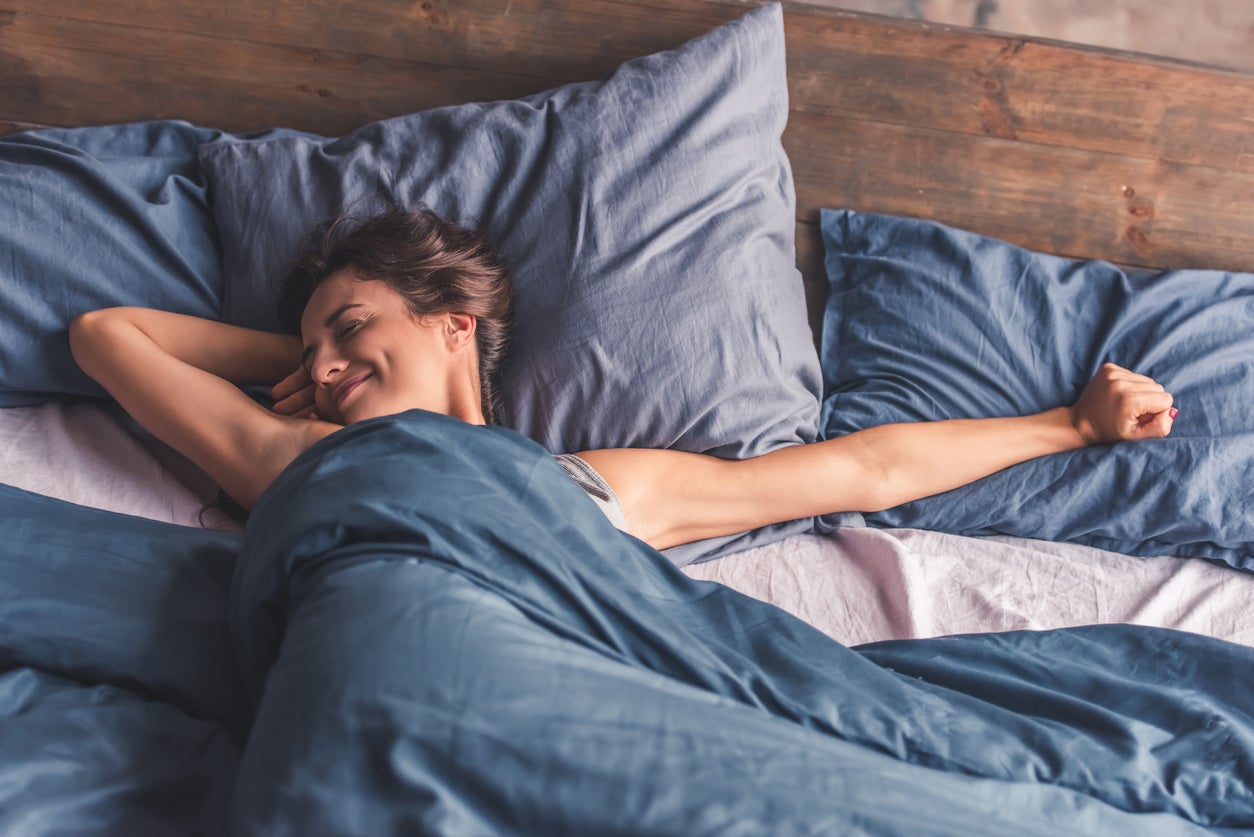The five-step evening routine to help you get a better night’s sleep
Winding down properly can have a huge impact on your sleep quality

Your support helps us to tell the story
From reproductive rights to climate change to Big Tech, The Independent is on the ground when the story is developing. Whether it's investigating the financials of Elon Musk's pro-Trump PAC or producing our latest documentary, 'The A Word', which shines a light on the American women fighting for reproductive rights, we know how important it is to parse out the facts from the messaging.
At such a critical moment in US history, we need reporters on the ground. Your donation allows us to keep sending journalists to speak to both sides of the story.
The Independent is trusted by Americans across the entire political spectrum. And unlike many other quality news outlets, we choose not to lock Americans out of our reporting and analysis with paywalls. We believe quality journalism should be available to everyone, paid for by those who can afford it.
Your support makes all the difference.Waking up feeling so groggy you wonder whether you actually slept at all through the night is not a fun way to start the day, and yet it’s increasingly common.
According to the Sleep Council’s latest Great British Bedtime Report, 30 per cent of people get a sleep poorly most nights, whether they believe that’s down to stress, worry, partner disturbance, noise or an uncomfortable bed.
The good news is, however, that there are steps you can take to improve the quality of your sleep, and a lot of that comes down to how you spend the hours before going to bed.
Best-selling health author and nutrition expert Jessica Sepel has revealed her five-step evening routine that will help you get some quality shut-eye.
1. Leave work at the office
It’s crucial to sign off for the day and try not to bring work-related stresses back home with you. “Carrying the stress of work with you during the evening only heightens cortisol and adrenaline, which are taxing on your overall health,” Sepel says.
With work taking up so much of our lives it can of course be hard not to think about it during the evening, but setting boundaries such as not checking work emails after 8pm can help.
2. Eat a healthy, wholesome dinner
Healthy eating needn’t be complicated, and getting the balance of macronutrients right before bed can help your body to relax rather than get more fired up.
Sepel recommends ensuring your evening meal contains some protein, healthy fats and fibre, and previous research suggests eating some carbs before bed can help induce drowsiness.
“And when you’re eating dinner, remember to do so slowly and mindfully,” Sepel advises.
3. Limit screen time
We all know that the blue light emitted from phones, tablets and computers hinders our ability to fall asleep, and that’s why Sepel says she stops looking at her phone after 8pm.
If that sounds a little drastic, however, even just having half an hour of screen-free wind-down time before getting into bed can be beneficial.
4. Do something relaxing
Winding down for bed and preparing the body and mind for sleep is essential, whether that means having a bath, lighting some candles, drinking herbal tea or reading.
“I love having a bath with a few drops of essential oil and Epsom salt,” Sepel says. “This really helps the body to rest and decompress, signalling time for bed. No matter what your chosen form of relaxation, remember to be mindful of the moment and know you’re worthy of that time.”
5. Prepare the body for sleep
Sepel advises adopting a yogic posture known as viparita karani for ten minutes before bed - essentially lying on your back with your legs up against a wall.
Not only does the pose improve circulation, but, Sepel says, it “puts the parasympathetic nervous system into the rest and digest state. When your body has entered a calm mood, it’s so much easier to get a good night’s rest.”
Join our commenting forum
Join thought-provoking conversations, follow other Independent readers and see their replies
Comments